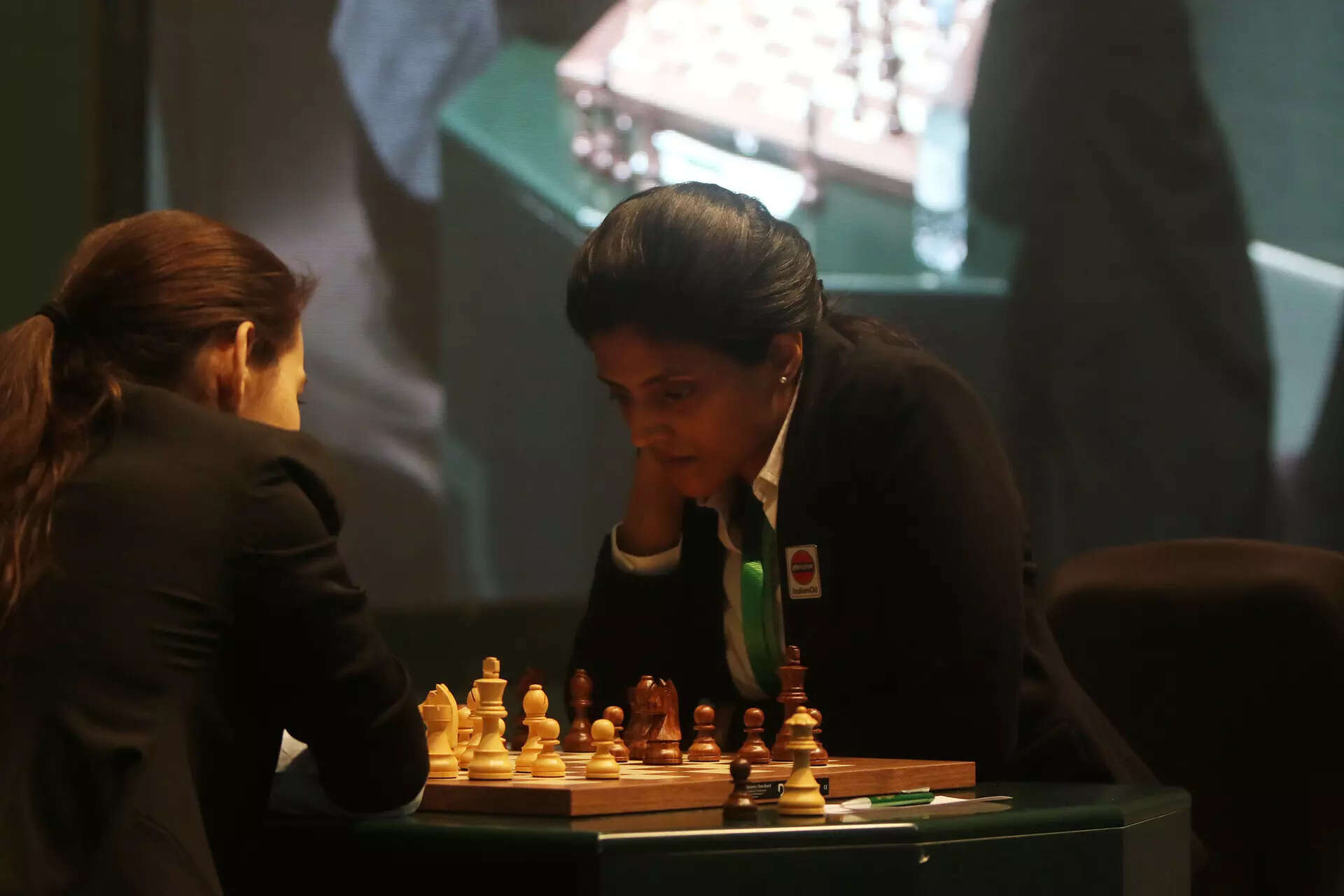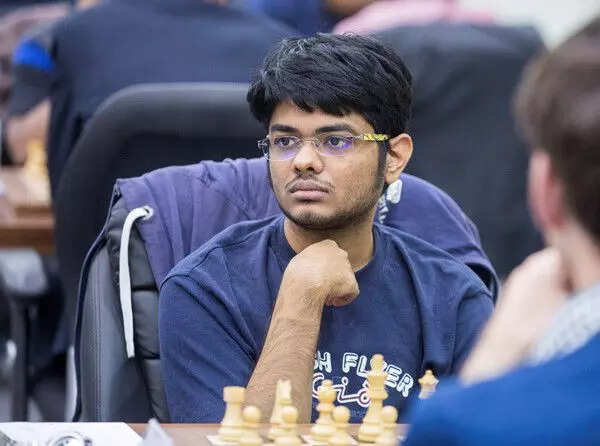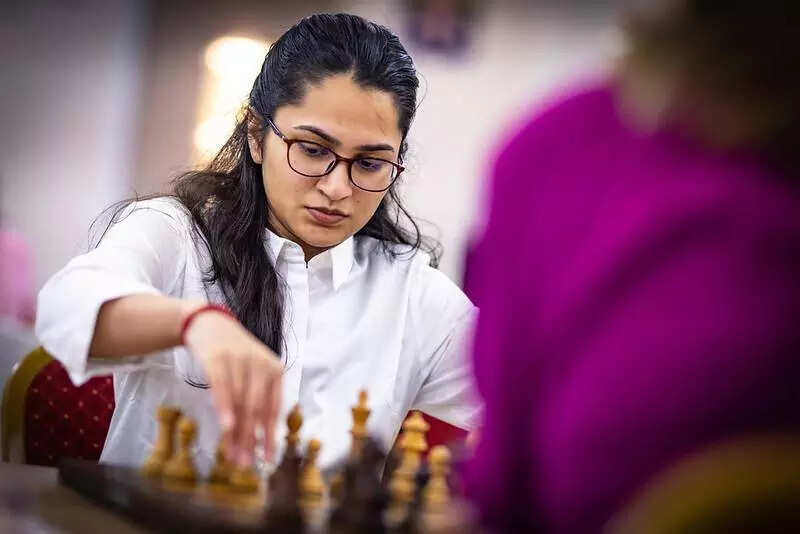Chess | ‘No support in male-oriented society’: Divya Deshmukh becomes the 4th female GM of India, but why not more? , Chess news

New Delhi: In the country of more than 1.5 billion people, every milestone bears weight. However, some victory is beyond personal achievements as they highlight the uncomfortable truth. Divya Deshmukh’s recent victory in the Fid Women’s World Cup was the same moment.At the age of only 18, Nagpur -born became the 88th Grandmaster (GM) of India, which joined an aristocratic club, which represents the summit of chess achievement worldwide. But a very great fact hidden behind applause and praise is: Divya is only the fourth woman in India to acquire that tag. In one of the world’s fastest growing chess ecosystems, why have only four women made it at the top, while more than 80 men have done so?Inequality is not only statistical; This is a symptom of a deep issue.Go beyond the border with our YouTube channel. Subscribe now!For GM Harika Dronewali, the road of success began with some misleading simple.Harika said, “I was introduced to chess at a young age of my family, and when I enjoyed it, the moment the moment I really spewed my drive, he was looking at a rolling trophy to the winner of a local tournament,” Harika, who started a journey of her chess at the age of seven, Timesofindia.com,“He stayed with me. I wanted to win myself. The following year, I went to win the national championship in my age category. That victory changed everything.”That change set him on a trip, which led to global recognition, but it was not always easy.“Then, chess did not receive as much public attention or sponsorship support,” she remembers. “It was difficult to maintain inspiration. The young players received today were very difficult when I was starting.”

Chess player Harika Dronwali (R) (Photo by Sala Malkavi/ Getty Image)
Yet Harika is in a hurry to clarify that her struggle was not always gender-specific. “I wouldn’t say that I had to face challenges that were especially because of my gender. I have been lucky in that regard,” she says. “But girls are not pushed to carry on ambitious goals in the same way.,GM Srinath Narayanan, a coach and one of the country’s most respected chess minds, has spent years to work with top players, both men and women of India.Asked why there are only four women GMS in India, their reaction is both clear and layered.“There are many interconnected reasons. Chess, like many other areas, reflects broad social patterns. Girls in India often face more pressure to prioritize academics or domestic responsibilities on sports. In addition, chess demands constant investment: time, travel, coaching, and family can hesitate to support girls in such a career, ”they say.“There is a noticeable drop-off after the age of 13–15 years, when many promising girl players slow or leave. Security concerns during the journey, and even during training put girls into a loss.

Shrinath Narayanan
“From a very young age, boys compete with other boys in a strong open pool, while girls compete with other girls in weak pools. It has long -term results. Their growth is limited by competition in a weak area. Women who have gone to break these huts often compete in open classes from a very young age. But this is not an easy decision. Being the best female player in the world, it provides more comfort and safety than having 100 numbers in the open section, which you do not get financially far away. Therefore women are encouraged to compete only, where the roof is very low. ,This entry of gender expectations makes a self-fulfilling prediction.31 -year -old Grandmaster says, “A better mindset than women in chess is not helpful.” “Although it is completely untrue, repeating it makes it a part of our belief system. A faith in naturally inferior is less confident levels, causing low expectations, and becomes a self-limiting factor.“Chess is expensive, and until a player has strong support, it is difficult, especially without immediate results. As girls get older, there is often more pressure in line with traditional roles, prefer academics, or opt for a “safe” career path. ,International Master (IM) Ventica Agarwal, one of the most promising young female players in India, three -time gold medal winners at Chess Olympiad, and Arjuna Award recipient, pointed to several practical barriers, one of them has difficulty playing tournaments abroad, as they offer high ratings.

Ventica Aggarwal
“It is financially challenging to play a lot of tournaments abroad. They need a person to travel with them, while boys start traveling alone from an early age,” 23 years old.“Women players do not get much opportunity to play with very strong players, which disrupts their development. Only women play in tournaments can lead to a decrease in contact with various styles of playing.“And our society is still male-oriented. Women do not get equal opportunity and support. ,Ventica is clear about what needs to be changed.“Women players require financial assistance, so that they can get the experience of playing a high-rated tournament abroad and the exposure required to reach the next level. (2500-2600 rated GMS) with more Grandmaster Round Robinas should be operated in India, and the upcoming top women players should get a chance to make it rapidly.”MGD1 co-founder Srikar Chanparagada, who manages many top grandmasters in India, agrees that the root of the problem is structural.“The simplest answer is a lack of support support. Parents, coaches, union, and even sponsors have insufficient support. It makes it difficult for girls to see chess as a real career route. Less of them sticks with it, and this means that the less potential female Grandmaster,” Srikar says.“Women players need to nurture the belief that they are not held back in any way from competing at the highest level. They can compete in the open category and still be victorious. We often see confidence at an early age.Also Read: ‘Security Protocol’: Why Divya Deshmukh played World Cup winning step inside the vacant siteSo what can be done?Answer are many, but they converge at one point: the chess ecosystem should have coordinated action from each stakeholder. Parents should encourage the ambitions of their daughters. Coaches should scout and advise women talent with long -term schemes. The associations should make inclusive policies and prefer female representation. The sponsors should take steps with committed financial assistance. And above all, the society should believe, really believe that girls can be grandmasters, not despite their gender, but regardless of it.Divya Deshmukh’s GM title, despite no criteria before the Women’s World Cup, is a monumental moment in the history of Indian chess, but it should not be an discrepancy. It should be a spark. Because the real victory will come when his story is not extraordinary, but expected.




